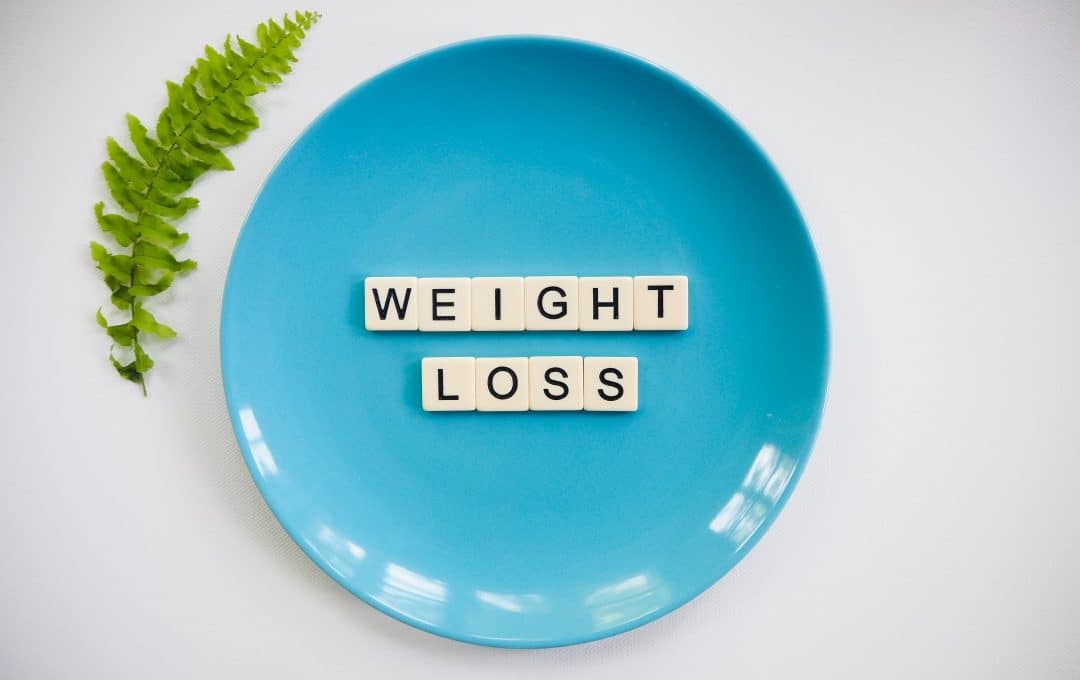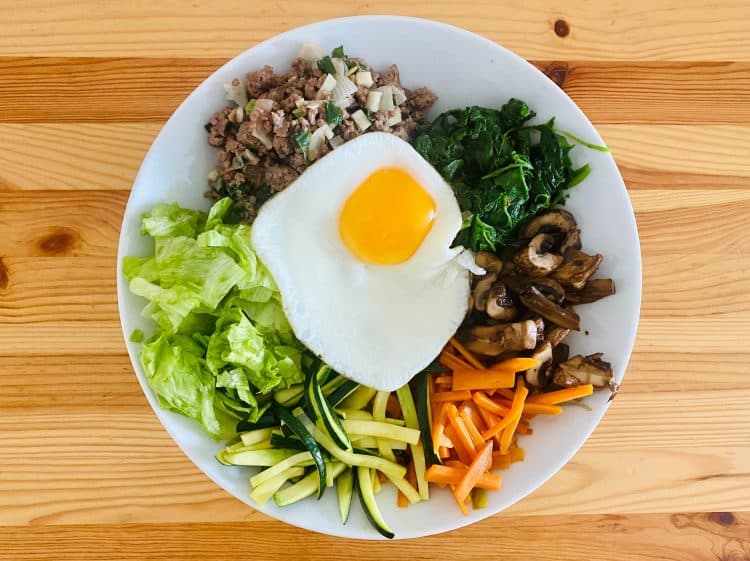When it comes to any diet, it’s essential to learn as much as possible to make informed choices about what it is and its benefits. This includes the one meal a day (OMAD) diet too. But just what are the benefits of a one-meal-a-day diet?
The benefits of the one-meal-a-day diet can include weight loss, increased energy and mental clarity, improved digestion and gut health, reduced inflammation, and anti-aging benefits. Always consult with your doctor before starting an intermittent fasting regimen.
Table of contents
What Is The One Meal A Day (OMAD) Diet?
Two elements comprise the one meal a day (OMAD) diet: eating one meal a day and fasting for the remaining 23 hours. The idea is to create a calorie deficit, which can lead to weight loss and fat burning. The OMAD diet has gained popularity in recent years, especially among those looking for an easy and simple way to lose weight.
How To Find Success With The OMAD Diet

Getting started with the OMAD diet can seem daunting. To help the process, below, you’ll find tips on how to transition, mistakes, and foods to eat. Since the transition process is integral to a practitioner’s overall success with the OMAD diet, we’ll start there.
Tips For Transitioning To The OMAD Diet
Knowing how to transition from your current diet to the OMAD diet is essential to success with the new diet. To help, below you’ll find tips to guide you through that process.
Consult With Your Healthcare Provider
Always consult with your healthcare provider before starting any intermittent fasting regimen. Doing so keeps you safe and healthy and helps ensure your success with the new diet.
Start Slowly
Gradually reduce the number of meals you eat per day and increase the length of your fasting window until you’re consuming all your daily calories in just one meal. You can start by reducing the number of meals you eat per day and gradually increasing the length of your fasting window. For example, you can start by skipping breakfast and eating lunch and dinner within an 8-hour window. As you become more comfortable with this schedule, you can gradually decrease your eating window until you consume all your daily calories in just one meal.
Focus On Nutrient-Dense Foods
Make sure to include a variety of nutrient-dense foods in your meal to ensure you’re getting all the vitamins and minerals your body needs.
Stay Hydrated
Drink plenty of water throughout the day to stay hydrated and reduce the risk of dehydration.
Avoid Processed Foods
Processed foods are often high in calories and low in nutrients, so it’s best to avoid them as much as possible.
Listen To Your Body
Pay attention to how your body feels and make adjustments as needed. If you experience any adverse effects, such as but not limited to dizziness or headaches, consult a healthcare provider.
Examples Of What To Eat
When following the OMAD diet, consuming all your daily calories in just one meal is essential. This meal can consist of anything you like, but it’s essential to focus on nutrient-dense foods that will keep you full and satisfied for longer. Stay away from unhealthy foods. Some examples of what to eat on the OMAD diet include:
- Protein: Lean meats, fish, eggs, tofu, and legumes.
- Vegetables: Leafy greens, broccoli, cauliflower, carrots, and other non-starchy vegetables such as tomato, peppers, onions, zucchini, eggplant, etc.
- Fruits: Berries, citrus fruits, apples, and pears.
- Whole grains: Brown rice, quinoa, oats, and whole wheat bread.
- Healthy fats: Nuts, seeds, avocados, and olive oil.
Drinking water during the day is another essential component of the OMAD diet. Doing so hydrates the body, but avoid sugary drinks such as soda and juice, as these will break your fast.
Benefits Of The One-Meal-A-Day (OMAD) Diet

The OMAD diet has several potential benefits, including weight loss and fat burning, increased energy and mental clarity, improved digestion and gut health, reduced inflammation, improved immune system, and anti-aging and longevity benefits. Let’s take a closer look at each of these benefits.
Weight Loss And Fat Burning
The OMAD diet can help create a calorie deficit, which can lead to weight loss and fat burning. Several studies have shown intermittent fasting can lead to significant weight loss, especially when combined with exercise and a healthy diet.
Increased Energy And Mental Clarity
When you eat multiple meals throughout the day, your body expends energy digesting and metabolizing food. By consuming all your daily calories in just one meal, you give your body a break from this process, which can lead to increased energy levels and mental clarity.
Improved Digestion And Gut Health
When you eat fewer meals throughout the day, your digestive system can rest and repair. This can help reduce inflammation in the gut and improve the balance of healthy bacteria in the microbiome. A healthy microbiome is essential for optimal digestion and overall health.
Reduced Inflammation And Improved Immune System
By consuming all your daily calories in just one meal, you give your body a break from the constant influx of food, which can lead to lower levels of inflammation. Additionally, intermittent fasting has been shown to improve immune function and increase the production of white blood cells, which help fight infections and diseases.
Anti-Aging And Longevity Benefits
Several animal studies have shown that intermittent fasting can increase lifespans and reduce the risk of age-related diseases, such as cancer and Alzheimer’s disease. While more research is needed in humans, these findings suggest intermittent fasting may also benefit humans similarly.
Potential Risks And Considerations
While the one-meal-a-day diet has several potential benefits, it’s essential to consider potential risks and take steps to avoid them. Some of the potential risks of the OMAD diet include the following items.
Nutrient Deficiencies And How To Avoid Them
When consuming all your daily calories in just one meal, getting all the nutrients your body needs can be challenging. It’s essential to focus on nutrient-dense foods and consider taking a multivitamin or other supplements to ensure you’re getting all the vitamins and minerals your body needs. Additionally, it’s crucial to vary your diet to get a wide range of nutrients. Make sure to include a variety of fruits, vegetables, whole grains, lean proteins, and healthy fats in your meal.
The Importance Of Staying Hydrated
When you’re fasting for 23 hours a day, it’s essential to stay hydrated. Drinking water throughout the day can help you feel full and reduce the risk of dehydration. It’s best to avoid sugary drinks and caffeine, as they can dehydrate you and add unnecessary calories to your diet. Additionally, you can add a pinch of salt, lemon, or other sliced fruit to your water to maintain a good electrolyte balance.
Overeating
It’s easy to overeat when only eating one meal a day. Focus on nutrient-dense foods and listen to your body’s hunger cues.
Who Should Avoid The OMAD Diet
The OMAD diet may not be suitable for everyone. It’s essential to talk to your healthcare provider before starting the OMAD diet, especially if you have any underlying health conditions, such as diabetes or eating disorders. Pregnant and breastfeeding women should also avoid the OMAD diet, as they have higher nutrient needs.
Conclusion: Benefits Of One Meal A Day
The OMAD diet is intermittent fasting that involves consuming all your daily calories in just one meal. This approach has several potential benefits, including weight loss, increased energy, improved digestion and gut health, reduced inflammation, and anti-aging and longevity benefits. However, it’s essential to consider potential risks, such as nutrient deficiencies and dehydration, and take steps to avoid them.
Before starting the OMAD diet, talking to your healthcare provider is crucial, especially if you have any underlying health conditions. If you’re interested in trying the OMAD diet, make sure to start slowly, focus on nutrient-dense foods, stay hydrated, and listen to your body’s hunger cues. Following these tips and avoiding common mistakes, you can safely and effectively incorporate the OMAD diet into your lifestyle.
So, what do you think about the benefits of one meal a day and the diet as a whole? Are you considering trying it out? Let us know your thoughts and why in the comments below!







